Scientific Program > Plenary Speakers & Keynotes
Plenary Conferences
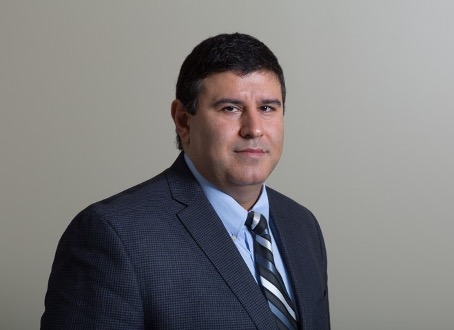 |
Pr. Ecevit Bilgili, New Jersey Institute of Technology (NJIT), USA
Title: The 4M Business for Drug Nanoparticles and Nanocomposites: Making, Manipulating, Measuring, and Modeling
Dr. Ecevit Bilgili is a professor, master teacher, and associate chair of the Chemical and Materials Engineering department at NJIT. His Particle Engineering and Pharmaceutical Nanotechnology Lab has been conducting research in designing formulations and processes for high-value-added products like pharmaceuticals with enhanced functionalities. His research interests center on the development of a fundamental understanding of the mechanisms involved during the formation of drug nanoparticles via top-down and bottom-up approaches, nanocomposite microparticles, and amorphous solid dispersions.
Dr. Bilgili serves as an Associate Executive Editor of Advanced Powder Technology, an Editor of Pharmaceutics and Powders journals, and an Editorial Advisor Board member of Pharmaceutical Research. He is a recipient of numerous Excellence in Teaching Awards from NJIT and the George Klinzing Best PhD Thesis in Particle Technology Award from the AICHE. His research has been funded by NSF ERC, NIH/FDA, Boehringer-Ingelheim, Catalent Pharma, GlaxoSmithKline, International Flavors & Fragrances, Nisso America, & SCG Thailand. https://people.njit.edu/faculty/bilgece
|
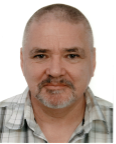 |
Dr. Frank Müller, BASF SE, Germany
Title: Recent developments and future prospects in comminution and classification at the chemical industry
Dr. Frank Müller is a mechanical and process engineer graduated in 1981 from Technical University of Clausthal and in 1985 from Technical University of Karlsruhe. He continued with a PhD on comminution at the institute of Mineral Processing in Clausthal and graduated in 1989. He then joined the process engineering department of BASF SE Ludwigshafen Germany. He is currently Senior Principal Scientist involved in various topics dealing with design of milling/classification/recycling facilities, de-bottlenecking and troubleshooting at production plants worldwide and research projects.
Dr. Müller serves since 2004 as vice chairman of the working party “Comminution” of the German Society of Chemical and Process Engineering and since 2005 he is also member of the working party “Comminution and Classification” of the European Federation of Chemical Engineering.
|
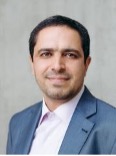 |
As. Pr. Mohsen Yahyaei, Sustainable Minerals Institute, University of Queensland
Title: Autonomous comminution circuits – Opportunities and challenges
Pr. Mohsen Yahyaei is leading the Advanced Process Prediction and Control (APPCo) program and Future Autonomous Systems and Technologies (FAST) strategic research in The University of Queensland’s Julius Kruttschnit Mineral Research Centre (JKMRC). These two research program aim to transform unit process modelling and simulation, moving on from the steady-state models previously developed at JKMRC, to develop and apply new techniques that make greater use of data generated on-site and sensor technologies in combination with advanced process control, computational analytics and modelling techniques. Both research program aims to address gaps to pave the path toward process autonomy in the minerals industry.
Mohsen did his undergraduate study in Mine Exploration. In 2002 he completed his Master’s degree in Mineral Processing. Then, he worked with the R&D centre of a coal washing plant in Iran for two years. Mohsen then moved to an operational role as a coal washing plant manager. In 2007 he returned to the University of Kerman where he completed his PhD in 2010, and after working in several industry-funded projects in Iran, he joined the University of Queensland in 2011.
He is a member of AusIMM and a professional member of Society of Mining, Metallurgy and Exploration (SME).
|
Other plenary conferences coming soon.
Keynotes
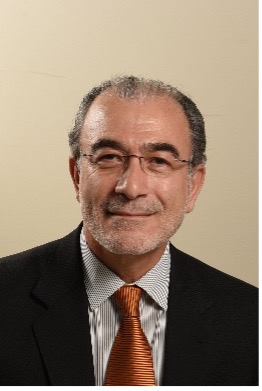 |
Pr. Mojtaba Ghadiri, University of Leeds, UK
Title: Analysis of the dynamics of particle and fluid motions in spiral jet mills by DEM & CFD simulation
Mojtaba Ghadiri is the Professor of Chemical Engineering at the University of Leeds, UK, with research activities focused on the link between bulk particulate solids behaviour and single particle properties with the aid of simulations by combined DEM and CFD. Application areas of interest are cohesive powder flow and fluidisation, size reduction and enlargement, environmental effects and electrical phenomena in particulate systems.
Mojtaba is a Fellow of the Royal Academy of Engineering, a Chartered Chemical Engineer and Fellow of the Institution of Chemical Engineers. He is the KONA 2019 Awardee of Hosokawa Micron Foundation for his contributions to Particle Technology. Until July 2019 he was the consultant of the International Fine Particle Research Institute in the size reduction area. For details of the current projects, collaborators and publications please see the Group’s web page: http://ghadiri-group.leeds.ac.uk/
|
 |
Pr. Sandra Breitung-Faes, University of Applied Science, Faculty of Process Engineering, Nürnberg, Germany
Title : About the significance to run media milling processes under optimal conditions
Pr. Sandra Breitung-Faes studied process engineering at TU Clausthal and received her doctoral grade in 2009 at the Institute for Particle Technology at the TU Braunschweig with the topic of wet stirred media milling of ceramic nano particles. Afterwards she had the positions of a team leader for grinding, a group leader for grinding and dispersing and from 2018 to 2022 she was the division manager for powder and slurry processes at the Institute for Particle Technology of TU Braunschweig. She has recently joined the Faculty of Process Engineering in the University of Applied Science in Nürnberg.
|
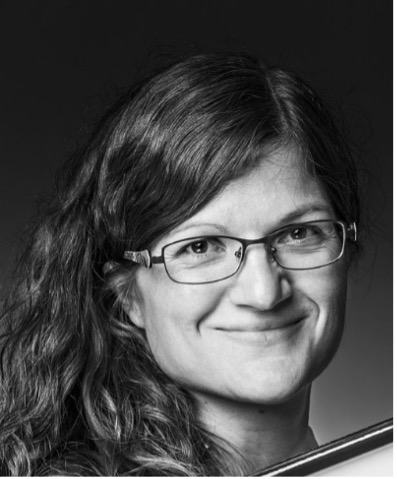 |
Dr. Kathy BRU, BRGM Orléans, France
Title: Selective fragmentation of primary and secondary resources
Kathy Bru has more than 15 years of experience in mineral processing at BRGM. Her research interests are focused on the comminution processes, and more especially on the selective fragmentation processes such as the electric-pulse fragmentation technology (also called high-voltage pulse technology) and the microwave-assisted comminution, and on the gravity and magnetic separation technologies. She has worked on the mineral processing of primary and secondary resources, the latter involving industrial waste, electronic waste and waste from the construction industry. The main objective of her works is the sustainable supply of raw materials. She has participated in several European projects involving industrial and academic partners.
|
|




